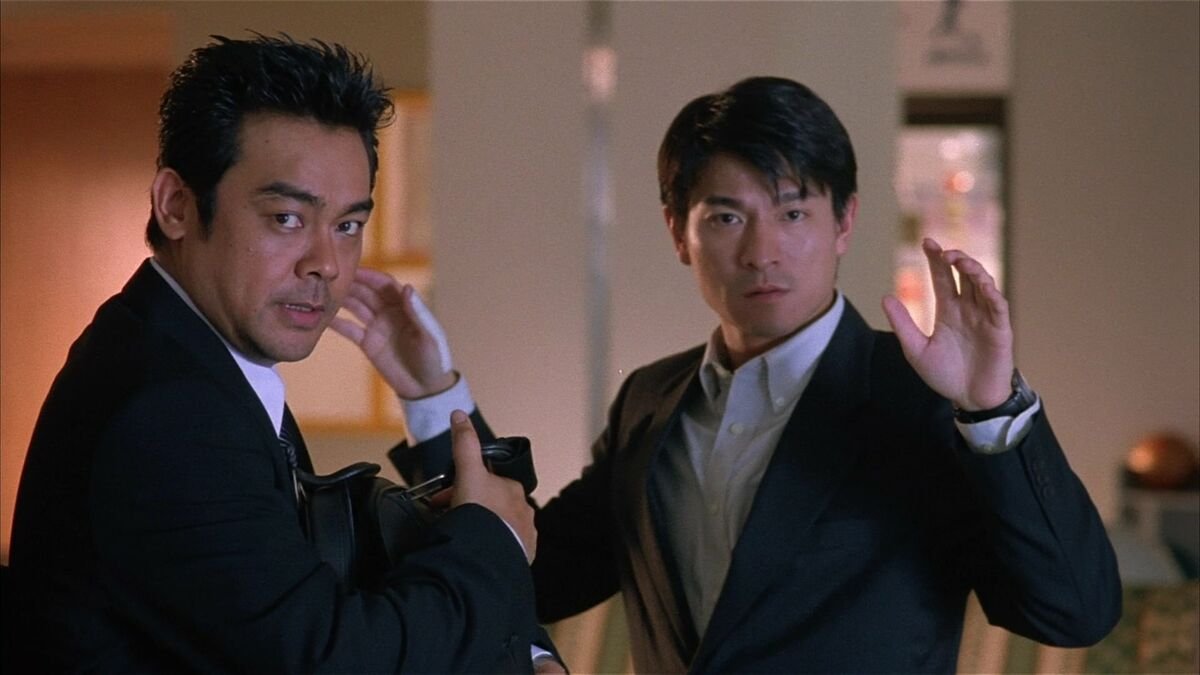Review: A Touch of Sin (2013)
It’s illuminating to watch a film such as Jia Zhangke’s 2013 crime saga A Touch of Sin in our current moment. The film, which tells four loosely-overlapping stories about sudden acts of violence in different regions of China, reframes classic stories within a modern world that is constantly churning under the mill of history. It’s a film with an immersive amount of sociological detail, paying as much attention to the environments of the characters as their emotional lives. The reason such an approach is illuminating is that A Touch of Sin shows a world that seems to change so rapidly that even the most adaptable people in the film seem to be left behind. In the final segment of the film’s narrative, a young man, Xiao Hui (Luo Lanshan), shifts from job to job to job to try to get a handle on the precarious nature of his existence. But even his instinctive, slapdash mode of living lags behind reality; he simply cannot keep standing as the ground shifts beneath his feet. Don’t we all feel similarly during the age of COVID-19?
The greatest strength of A Touch of Sin is its wedding of classical conflicts with the finely-observed details of modern China, the definitive country of the 21st century. The film ends with a traditional performance of Chinese theatre, the performer chanting “What is your sin?” to the audience. The four stories that precede this moment answer that question, showing the various ways that individuals react violently to their circumstances.
The first storyline follows a disgruntled man, Dahai (Jiang Wu, brother of actor/director Jiang Wen from Rogue One), who gets revenge on corrupt local officials in a mining town in Shanxi. The second story follows the nomadic killer and thief, Zhou San (Wang Baoqiang), as he passes through several provinces. The third follows Xiao Yu (Zhao Tao, Jia’s wife and frequent collaborator) who defends herself from sexual assault in a massage parlour on the Yangtze River. And the fourth is the tale of the precarious young worker I outlined above.
The details of each character are specific to their environment, both personal and geographic, but they all struggle against the precariousness of their position in the modern world and the specific pressures of corporate and governmental power in China. The conflicts each character faces seem archetypal and applicable to any time period, but the details of how those conflicts come about are specific to China in the here and now. Thus, Dahai could easily be a farmer in the Tang Dynasty getting revenge on his local aristocrats who have taxed his crops for their own gain, but instead, he’s a man who feels cheated out of his portion of the profits from privatizing the local mine.
The conflict in A Touch of Sin is universal, while the environment of that conflict is anything but. Jia uses unbroken, often wordless medium shots to follow his characters and observe them viewing their environments. He favours deep focus, to allow us to comprehend the details in the frame, but he’s not stringent about sticking to a documentary approach. For instance, his action scenes showcase fluid camera movements and percussive cross-cutting that’s borrowed from the wuxia genre. Thus, A Touch of Sin is not merely an illuminating sociological exercise, but a thrilling drama, with relatable moments of pathos and violence punctuating the more meditative aspects of its filmmaking.
Viewing A Touch of Sin during the COVID-19 pandemic clarifies that history is not only active in moments of great crisis, but also in the mundane day-to-day realities of people across the world; but it’s felt more acutely by certain people in different places and times. Most of the characters of A Touch of Sin are swallowed up by history. Dahai deliberately makes one final stand against it, Xiao Yu has her life upended by it, and Xiao Hui succumbs to it. Only Zhou San thrives in this precarious world, but that’s by foregoing adherence to the code of xia (a formative aspect of the wuxia genre, which can roughly be thought of as honour), robbing his life of all meaning in the process. I can only hope that our own responses to the current crisis don’t learn the wrong lessons from Zhou San, mistaking dejection as an invitation to ruthlessness, and riding the wave of history in order to spread chaos to no end.
8 out of 10
A Touch of Sin (2013, China/Japan/France)
Written and directed by Jia Zhangke; starring Jiang Wu, Zhao Tao, Wang Baoqiang, Luo Lanshan.



George More O’Farrell’s The Holly and the Ivy is a perceptive Christmas drama that deserves a place in the Christmas rotation.